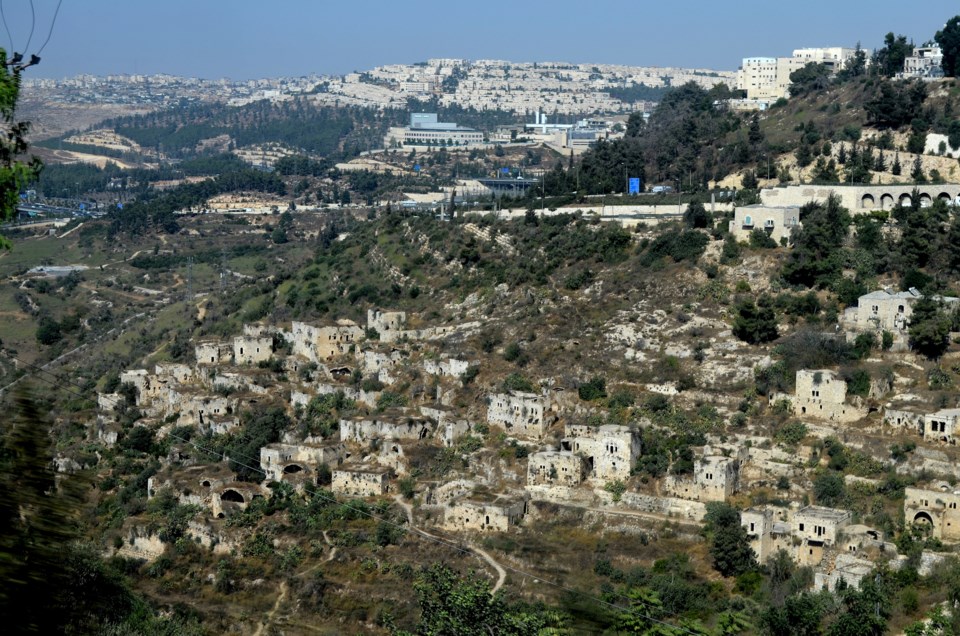This month, the United Nations commemorated the 75th anniversary of the Nakba, meaning catastrophe in Arabic. It refers to the expulsion of Palestinians from their homes when the State of Israel was created.
I first became aware of this event forty years ago when I read Blood Brothers, by Elias Chacour, a Palestinian Israeli citizen born in Galilee in 1939. Interestingly, he does not use the word Nakba in his narrative.
Chacour speaks fondly of his childhood and the peaceful coexistence of the region's Christian, Jewish, and Muslim communities. He opens his book by telling the story of the day his father brought home a lamb so that a special meal could be prepared to welcome new immigrants from Europe, Jews fleeing from the tyranny of Adolf Hitler and the Holocaust.
The guests in their home were polite, but the celebratory nature of the meal was dampened by the fact that they carried machine guns.
Chacour’s Christian village of Biram was emptied but people were able to stay in a nearby village. For six years they petitioned the Israeli courts to be allowed to return home, but while the legal system seemed sympathetic to their plight, the military was not. Village leaders received a court order saying they could return and were told by the soldiers stationed around Biram that everything was in order. They could return on Christmas.
One can imagine the joyful villagers singing Christmas hymns as they rounded the hill near their village, only to see tanks and cannons open fire on their church and their homes, destroying their last hope.
The childhood recounted by Elias Chacour before 1948 does not fit with the narrative of hatred between Jews and Arabs that has been in the headlines for the last 75 years. Are the ethnic tensions that exist in the Middle East simply another European colonial myth intended to drive people apart? Was there an alternative to the Nakba?
If one examines the Arab world before the time of European colonization, one does see inequalities, but despite noted exceptions, one sees a social structure where differences were largely tolerated, and different religious and ethnic groups were protected. It can be argued that anti-Semitism was a largely European concept. Throughout the centuries, when Jews were persecuted in Europe, they frequently found new homes in the Arab world. In the teachings of Islam, Jews and Christians are respected as “People of the Book.”
As an Arab-Christian living in the diaspora, Chacour’s book has always resonated with me. In fact, it impacts my understanding of the Arab-Israeli conflict more than anything else I’ve read. It also deeply saddens me to see the continued violence and death being perpetrated. It simply does not make sense.
Even the words we use do not make sense. What is an Arab? Can a Christian be an Arab? What about a Jew? If we all come from the same homeland, are we not all one people?
And what of the word anti-Semite? Europeans called all people from the region Semites. Even writing this article makes me fear being labeled an anti-Semite, but how could I hate my Jewish neighbours? Doesn’t being Jewish, Christian or Muslim have more to do with decisions our relatives made centuries ago than with who we are as a people? For me to be anti-Semitic would mean that I hate myself and my ancestry, and I simply cannot do that.
Some would call Elias Chacour’s father a naïve fool for welcoming Zionist soldiers into his home with a celebratory meal. I see him as a courageous prophet of truth.
Violence and deception are getting us nowhere and will in fact continue to exacerbate tensions in the region. Many people of all faiths and of no faith recognize this and come together in peace and solidarity. Our numbers are growing every day.
Peace and justice will triumph. In fact, nothing else can.



